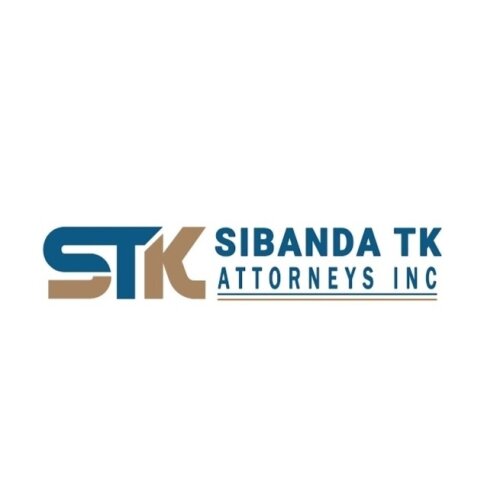Best Natural Resources Lawyers in Kwamhlanga
Share your needs with us, get contacted by law firms.
Free. Takes 2 min.
List of the best lawyers in Kwamhlanga, South Africa
About Natural Resources Law in Kwamhlanga, South Africa
Kwamhlanga, located in Mpumalanga Province, South Africa, is a region abundant in natural resources such as land, water, minerals, forestry, and wildlife. The management, use, and conservation of these resources are governed by various local and national laws to ensure environmental sustainability and that communities benefit fairly. Natural Resources Law in South Africa covers a range of issues including land rights, mining, water usage, environmental protection, and the rights of local and indigenous communities. In Kwamhlanga, these laws are especially significant given the region's history and reliance on agriculture, community land, and natural ecosystems.
Why You May Need a Lawyer
There are many situations in Kwamhlanga where an individual, community, business, or organization may require legal guidance regarding natural resources. Common scenarios include:
- Land claims and land use disputes, particularly those involving communal property or historical dispossession.
- Mining rights and permits, including negotiation with mining companies and government authorities.
- Water access and usage rights, especially for agricultural or community needs.
- Environmental impact assessments and compliance with environmental regulations.
- Community consultations and negotiations regarding resource extraction.
- Protection of indigenous knowledge and cultural resources related to land or biodiversity.
- Illegal resource extraction, such as unlawful sand mining or timber harvesting.
- Conflicts between traditional leadership and government regarding resource management.
- Litigation or mediation over natural resource liabilities or damages.
Local Laws Overview
South Africa’s natural resources laws operate at national and provincial levels, but certain local ordinances and customary laws are especially relevant in Kwamhlanga. Key legislation includes:
- Mineral and Petroleum Resources Development Act (MPRDA): Governs all mining activities, including licensing and community participation.
- National Water Act: Sets the rules for accessing and using water resources, prioritizing fair and equitable allocation.
- National Environmental Management Act (NEMA): Provides the framework for environmental protection, including Environmental Impact Assessments (EIA) for all major projects.
- Restitution of Land Rights Act: Allows individuals and communities to claim land lost due to past racial discrimination.
- Communal Land Rights Act: Governs tenure for land held under traditional or communal systems.
- Provincial and Local By-laws: Address specific issues such as waste management, land use planning, and community resource management.
- Customary Law: In many cases, traditional usage and governance of resources coexist with formal laws, especially on communal land.
Frequently Asked Questions
What is considered a natural resource in Kwamhlanga?
Natural resources in Kwamhlanga include land, minerals, water, forests, wildlife, and other components of the environment that provide economic, cultural, or social value.
Who owns natural resources in Kwamhlanga?
Ownership varies depending on the resource. The state is generally the custodian of minerals and water, while land may be owned privately, communally, or by the government. Customary communities may govern communal land under traditional authority.
How do I claim land rights if my family was dispossessed?
The Restitution of Land Rights Act allows individuals or communities to file land claims for land lost due to apartheid-era dispossession, through the Commission on Restitution of Land Rights.
What are the steps to obtain a mining permit in Kwamhlanga?
You must apply through the Department of Mineral Resources, conduct consultations with affected communities, complete an environmental impact assessment, and comply with national legislation such as the MPRDA and NEMA.
How can a community negotiate with a mining company?
Communities should first seek legal representation or advice, hold inclusive meetings, understand their rights under the law, and ensure any agreements are fair and comply with constitutional and statutory requirements.
What is an Environmental Impact Assessment (EIA)?
An EIA is a mandatory study to assess the environmental consequences of proposed projects or resource extraction before approval is granted, ensuring that all risks and benefits are considered.
Are there restrictions on water use for farming?
Yes, the National Water Act requires users of significant water quantities (such as for commercial agriculture) to obtain permissions or licenses, and water must be used sustainably and equitably.
What can I do about illegal sand mining or timber harvesting?
You can report such activities to local authorities, the Department of Forestry, Fisheries and the Environment, or the police. Legal action may be possible if natural resources are being damaged or the community’s rights are being violated.
Do traditional leaders have a say in resource management?
Yes, traditional leaders often play a significant role in the administration of land and resources within their communities, especially for communal land and customary practices, but this must align with statutory law.
How do I ensure a new project is legally compliant?
Consult with a lawyer who specializes in environmental or resource law, obtain all necessary permits, carry out required impact assessments, and engage with local authorities and affected communities.
Additional Resources
Persons seeking legal advice on natural resources in Kwamhlanga can consult the following:
- Department of Mineral Resources and Energy (DMRE)
- Department of Forestry, Fisheries and the Environment (DFFE)
- Commission on Restitution of Land Rights
- Mpumalanga Provincial Department of Agriculture, Rural Development, Land and Environmental Affairs
- Legal Aid South Africa
- Community Property Associations (CPAs)
- Local traditional councils or houses of traditional leaders
- South African Human Rights Commission (SAHRC) for environmental and community rights issues
- Non-governmental organizations such as the Land and Accountability Research Centre, or environmental/land rights NGOs
Next Steps
If you require legal assistance related to natural resources in Kwamhlanga, consider the following actions:
- Clarify what specific issue you are facing (e.g., land claim, water dispute, mining negotiation).
- Gather all relevant documents (title deeds, permits, correspondence, historical records).
- Contact a lawyer or legal clinic with experience in natural resources or environmental law.
- Visit local legal aid offices or ask for referrals from the organizations listed above.
- If your issue involves a community, organize a meeting to ensure collective understanding and participation.
- Do not sign any agreements or contracts relating to resource use without legal review.
- Stay informed about your rights under both statutory and customary law.
- Follow up regularly with authorities or your lawyer about the progress of your case.
Navigating natural resources law can be complex, but seeking early legal advice and utilizing available resources will help protect your rights and the environment for future generations in Kwamhlanga.
Lawzana helps you find the best lawyers and law firms in Kwamhlanga through a curated and pre-screened list of qualified legal professionals. Our platform offers rankings and detailed profiles of attorneys and law firms, allowing you to compare based on practice areas, including Natural Resources, experience, and client feedback.
Each profile includes a description of the firm's areas of practice, client reviews, team members and partners, year of establishment, spoken languages, office locations, contact information, social media presence, and any published articles or resources. Most firms on our platform speak English and are experienced in both local and international legal matters.
Get a quote from top-rated law firms in Kwamhlanga, South Africa — quickly, securely, and without unnecessary hassle.
Disclaimer:
The information provided on this page is for general informational purposes only and does not constitute legal advice. While we strive to ensure the accuracy and relevance of the content, legal information may change over time, and interpretations of the law can vary. You should always consult with a qualified legal professional for advice specific to your situation.
We disclaim all liability for actions taken or not taken based on the content of this page. If you believe any information is incorrect or outdated, please contact us, and we will review and update it where appropriate.









